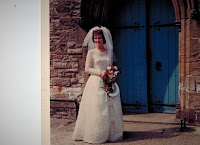These days there is a
generational dread of fading into senility of one kind or another. We have so
much information about the distress and Alzheimer’s disease and so little real hope
of any cure. What to do about it? Of course there is this cliché about the
brain; the mantra swirls around us: ‘You have got to use it or lose it,’ they
say.
My own way of using it is to
keep on with the writing that has dominated my life, despite the change of
focus in publishing from literary story-telling to the more profitable embrace
of fantasy, proto-pornography, and violent sadistic proto-heroism. Interestingly these
latter qualities are designed to ensure
escape from the pressure and mundane nature of ordinary lives, rather than - like good literary stories - revealing some deep truths about those
ordinary lives: a very creative escape.
So any way my strategy to fend
off mental deterioration is to continue to write and publish good literary
stories which reveal some deep truths about ordinary lives. To do this I
developed this idea for Damselfly Books. And unlike my early publishing days
where I had keen editors and three book contracts to motivate me, I have to fly
free and generate my own motivation.
All this has made me think
about writers out there who continue to write and write well despite the odds. The thought has occurred to me that in order
to write creatively one needs a clear - even
an empty - space in one’s head for
the story, poem or essay to me into, to make itself comfortable, to allow it to
grow.
However, depending on what
happens on the planet of ordinary life, such essential space may not be there.
It can be crushed into nothingness by routines, obligations, and those myriad inescapable
tasks to keep life for oneself and others on an even keel. As well as this, I
understand that this lack of mental space can dominate the lives of those who
care for others, whether those others are spouses, children, parents, or
beloved friends. (Often - but certainly
not exclusively – these domestic imperatives fall on women.)
And this lack of space to
embark on creative, regenerative action can also dominate the lives of those
individuals whose inner life is full of ghosts, fears and mental chaos of one
kind or another. This prevents them from manufacturing the ladder with which
they can climb out of their tumbled life and escape into creativity.
In my view this lack of brain
space is the fundamental cause of the much vaunted ‘writers block’. Of course
you can’t write the next poem or the next chapter or the next paragraph when
there is no space in which it can grow!
On the other hand, some people
live lives where there are just too many empty spaces. One thinks of people who
are recently retired and miss the busy involvement of their jobs. Also one thinks
of people who are bereaved, where the person they have no longer fills all the
empty spaces in corners of their lives.
There are recommendations out
there, of course the ways in which people may fill the spaces – and the brain
turning over - with things like crosswords,
Sudoku, doing good community work; watching intelligent TV, listening to BBC Radio
Four, reading new books, even tackling half remembered skills like pottery,
painting and of to reduce their handicap.
My choice of brain-gymnastics is
to keep researching, writing and producing my stories and sharing them with readers
who still recognise the invigorating magic of the adventures and life journeys
of heroic people not unlike themselves.
In my new novel Becoming
Alice Ruth Kelman gives birth to her daughter Alice in a Tyneside
cellar. A thousand miles away, Louis Roxby, a young English soldier adjusts to
the severe strictures and strange opportunities of prison camp life. Between
1941 and 1951 Alice Kelman becomes a northern grammar school girl; Ruth becomes
a skilled photographer and Louis Roxby becomes, in turn, a forger, an artist,
and a teacher, finally to enjoying the freedom of post-war bohemian
London. Then in 1951, their paths cross as they are drawn like iron
filings to a magnet to the celebratory Festival of Britain in London’s South
Bank.
And now this week Damselfly Books have published Scenes from a Life by new and
talented writer Hugh Cross – who began writing when he was 80. No Sudoku
for him!







